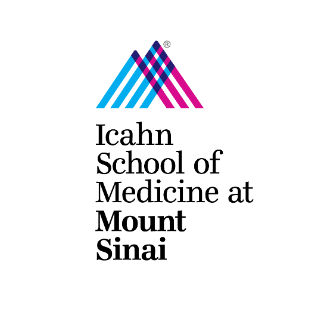预约演示
更新于:2026-02-28
KT-253
更新于:2026-02-28
概要
基本信息
非在研机构- |
权益机构- |
最高研发阶段临床1期 |
首次获批日期- |
最高研发阶段(中国)- |
特殊审评孤儿药 (美国) |
登录后查看时间轴
结构/序列
分子式C48H52Cl2FN7O6 |
InChIKeyCQFHGOWYJXQICA-ZTNLUFLKSA-N |
CAS号2713618-08-5 |
关联
1
项与 KT-253 相关的临床试验NCT05775406
A Phase 1, Multicenter, Open-Label, Dose-Escalation Study to Evaluate the Safety, Tolerability, Pharmacokinetics, Pharmacodynamics, and Clinical Activity of Intravenously Administered KT-253 in Adult Patients with High Grade Myeloid Malignancies and Acute Lymphocytic Leukemia, Lymphoma, and Advanced Solid Tumors
This Phase 1 study will evaluate the safety, tolerability, pharmacokinetics/pharmacodynamics (PK/PD), and clinical activity of KT-253 in adult patients with relapsed or refractory (R/R) high grade myeloid malignancies, acute lymphocytic leukemia (ALL), R/R lymphoma, myelofibrosis, and R/R solid tumors. The study will identify the pharmacologically optimal dose(s) (MTD) of KT-253 as the recommended Phase 2 dose (RP2D), based on all safety, PK, PD, and efficacy data.
开始日期2023-05-15 |
申办/合作机构 |
100 项与 KT-253 相关的临床结果
登录后查看更多信息
100 项与 KT-253 相关的转化医学
登录后查看更多信息
100 项与 KT-253 相关的专利(医药)
登录后查看更多信息
1
项与 KT-253 相关的文献(医药)1962-01-01·Chemical & pharmaceutical bulletin4区 · 医学
Studies on Acylase Activity and Microorganisms. XX. Isolation of Soil Bacteria Capable of Resolving Tryptophan by their Acylase on N-Acetyl-DL-tryptophan
4区 · 医学
Article
作者: Kameda, Yukio ; Ishii, Yoshiko
Two addnl. strains (KT 251 and KT 253) of soil bacteria capable of resolving N-acetyl-DL -tryptophan (I) by their acylase were isolated from soil by using a synthetic medium containing I as the sole source of C.Both strains could be cultivated in various synthetic media with DL -tryptophan, AcOH, or PhCH2CO2H as the sole source of C.The asymmetric hydrolysis of I was carried out as described above for N-benzoyl-DL -threonine.KT 251 yielded 39% L -tryptophan (II) and 57% N-acetyl-D -tryptophan (III), whereas KT 253 yielded 29%, II and 61% III.
49
项与 KT-253 相关的新闻(医药)2026-02-10
平台型生物技术公司向临床阶段制药企业的转型,需要跨越科学概念与商业价值之间的鸿沟。Kymera Therapeutics凭借其靶向蛋白降解平台产生的明确机制证据与积极临床数据,已确立坚实的成药基础。其发展路径揭示了一项颠覆性技术在免疫学与肿瘤学领域证明其解决未竟医疗需求潜力的过程。本文基于公开的临床数据、技术细节与商业动态,分析Kymera如何通过催化性降解机制重塑药物开发逻辑,并评估其后续关键节点的挑战与确定性。
蛋白降解范式的确立:
从“不可成药”靶点到临床概念验证
靶向蛋白降解技术已进入差异化临床验证阶段,其核心价值在于为传统小分子抑制剂无法触及的靶点类别提供了新的治疗策略。该技术的成药性基础依赖于对“不可成药”靶点的成功干预、催化性清除机制带来的药理优势,以及平台对特定E3连接酶的应用和对蛋白功能的彻底消除。Kymera的临床进展是评估该范式能否成为主流疗法的关键依据。
传统小分子药物的“占位驱动”模式存在根本性限制。此类药物需要持续占据蛋白质的活性位点以抑制其功能。然而,人体内约80%的蛋白质缺乏明确的活性口袋,或其功能主要通过非酶活性的“支架”作用实现。这使得此类靶点长期被视为“不可成药”,相关疾病领域存在大量未满足的临床需求。
靶向蛋白降解技术通过利用人体天然的泛素-蛋白酶体系统,开辟了处理“不可成药”靶点的新路径。Kymera采用的异分叉双功能分子PROTAC,由靶蛋白配体、E3连接酶配体以及连接链组成。其作用机制始于三元复合物的形成,随后E3连接酶在靶蛋白上标记泛素链,将其导向蛋白酶体进行降解。
催化循环特性是此类技术的药理基础。单次给药的PROTAC分子可循环使用,清除大量靶蛋白。这一特性意味着,相比于传统抑制剂,降解剂可能以更低的系统暴露量实现深度的靶点抑制,从而获得更优的治疗窗口。该机制已在临床前研究中被反复验证。
Kymera的Pegasus平台的差异化优势在于对E3连接酶的选择性应用及对蛋白功能的彻底消除。与多数依赖CRBN或VHL等常见E3连接酶的竞争对手不同,Kymera致力于开发针对特定组织或细胞类型高表达的E3连接酶配体,旨在提高靶向性。更为关键的是,该平台能够实现“支架功能消除”。以IRAK4为例,传统抑制剂仅能阻断其激酶活性,而降解剂能将整个IRAK4蛋白从细胞中清除,从而实现更彻底的通路封锁。这种机制差异是Kymera解决未竟需求的理论基础。
STAT6降解剂:
口服药物的“类生物制剂”疗效验证
KT-621作为Kymera的免疫学旗舰资产,其核心目标是证明口服小分子降解剂能达到注射型生物制剂的疗效水平。该项目的价值取决于其临床数据能否直接对标现有标准疗法、展示独特的安全性特征,并得到监管机构的认可。其商业逻辑在于为全球超过1.5亿2型炎症疾病患者提供口服便利的替代方案。
KT-621靶向STAT6,这是介导白介素-4与白介素-13信号传导的关键转录因子。赛诺菲与再生元的度普利尤单抗通过阻断IL-4Rα受体来间接抑制STAT6通路,已成为特应性皮炎等疾病的全球标准疗法,年销售额超过100亿美元。Kymera的策略是提供一种口服替代方案,以触达因注射障碍而未接受生物制剂治疗的患者群体。
BroADen 1b期试验数据提供了支持该策略的初步证据。2025年12月公布的这项研究评估了KT-621在中重度特应性皮炎患者中的疗效与安全性。数据显示,药物实现了深度的靶点降解与快速的临床改善。
这些数据将KT-621的初步疗效直接对标已上市的度普利尤单抗。在类似的治疗周期内,KT-621观察到的EASI评分改善程度与度普利尤单抗在关键临床试验中的数据范围相近。同时,药物表现出区别于其他口服疗法的安全性特征。
肿瘤学管线:
在难成药靶点上的概念突破
Kymera的肿瘤学资产专注于STAT3与MDM2这两个历史上难以用小分子抑制的靶点,其临床早期数据旨在验证降解策略的独特性。传统上,针对这些靶点的抑制剂开发屡遭失败。这些早期数据提供了降解策略可能带来新治疗机会的初步证据,但其价值完全依赖于后续更大规模试验的确认。
STAT3降解剂KT-333在1a期临床试验中显示了令人鼓舞的抗肿瘤活性。STAT3参与多种恶性肿瘤的生长、生存与免疫逃逸。在2024年欧洲血液学协会与美国临床肿瘤学会年会上公布的数据显示,KT-333在重度经治的经典型霍奇金淋巴瘤与皮肤T细胞淋巴瘤患者中实现了临床缓解。
KT-333的早期数据包含完全缓解病例与机制验证。
在经典型霍奇金淋巴瘤队列中,两名曾接受过PD-1抑制剂与Brentuximab Vedotin治疗失败的患者,在接受KT-333治疗后达到完全缓解,并随后接受了干细胞移植。
肿瘤活检证实了STAT3蛋白的深度降解,并观察到γ-干扰素刺激的基因特征被诱导,这提示降解STAT3可能重新激活肿瘤微环境中的免疫反应。
主要副作用为轻至中度的口腔炎与疲劳,未观察到传统化疗常见的严重骨髓抑制。
MDM2降解剂KT-253旨在通过一种独特机制激活p53抑癌通路。p53是关键的肿瘤抑制蛋白,但在超过一半的癌症中功能正常,其活性被MDM2过度抑制。传统MDM2抑制剂会触发负反馈回路,导致癌细胞产生更多的MDM2蛋白,从而快速抵消药效。KT-253通过彻底降解MDM2蛋白,理论上能够克服这一适应性反馈。
KT-253的初步临床数据显示了抗肿瘤活性与可耐受的安全性。初步结果显示,其在p53野生型的默克尔细胞癌与急性髓系白血病等肿瘤中具有抗肿瘤活性,且耐受性初步观察优于传统的小分子MDM2抑制剂。然而,这些结论需要在更多患者中得到验证。
竞争格局:
TPD领域的差异化定位
Kymera身处全球靶向蛋白降解研发的第一梯队,其竞争地位通过与同行及标准疗法的对比得以清晰界定。竞争不仅来自其他TPD公司,更来自现有已确立的治疗标准。竞争的本质是技术平台产出优质资产的能力与速度。
与同领域TPD公司的对标揭示了各自的技术路径与疾病领域侧重。
面对现有标准疗法,Kymera试图构建基于机制特性与给药便利性的商业护城河。
与传统生物制剂的竞争:以度普利尤单抗为例,KT-621的核心价值主张是“口服便利性结合生物制剂级别的药效”。若其后续试验能维持1b期观察到的疗效,其在畏惧注射的患者群体中将具有显著优势。
与JAK抑制剂的竞争:STAT6降解旨在特异性关闭2型炎症通路,而JAK抑制剂往往对多个JAK亚型产生抑制,带来广谱的免疫抑制。降解剂理论上可能提供更精准的免疫调节,但其长期安全性优势尚未被临床验证。
财务运营:
支撑关键临床读出的资金基础
在生物技术行业融资环境充满挑战的背景下,Kymera通过成功的资本运作与战略合作,建立了稳固的财务缓冲。充足的现金储备是其推进高风险、高价值临床项目至关键数据读出点的基本保障。公司的现金状况、资金消耗预期以及研发决策效率共同构成了其财务运营框架。
公司的现金状况使其能够独立推进核心项目。截至2025年12月31日,公司拥有未经审计的现金、现金等价物及投资约16亿美元。这一资金储备主要得益于2025年完成的几项重要融资:2025年6月完成的2.88亿美元私募融资,以及2025年底完成的6.02亿美元超额配售公开发行。
管理层预计现有资金足以支撑公司运营至2029年。这一时间跨度覆盖了所有核心免疫学资产的关键临床节点数据读出。如此长的现金跑道降低了公司在数据读出前因资金压力而被迫低价授权核心资产的风险。
临床与商业风险:
通往监管批准与市场准入的未竟之路
尽管前景广阔,Kymera仍需应对蛋白降解技术作为新药物形式所固有的科学、监管与市场风险。这些风险根植于其作用机制本身以及尚在发展的行业生态中。成功应对这些风险是技术从概念验证走向主流治疗的必要条件。
科学风险主要围绕降解剂的特异性与长期生物学影响。
脱靶降解:降解剂可能意外诱导非靶标蛋白的降解。由于降解具有催化性,长期暴露可能导致未知的累积毒性。这需要通过广泛的临床前筛选与仔细的临床监测来管理。
钩子效应:在极高药物浓度下,降解剂分子可能分别饱和靶蛋白与E3连接酶,阻止三元复合物的有效形成,反而导致药效降低。这要求临床剂量探索必须精确找到最佳治疗窗口。
长期蛋白质稳态扰动:长期消除STAT6或IRF5等关键转录因子,可能引发未知的代偿性生物学反馈。此类风险需要大规模、长时间的3期临床试验来充分评估。
监管风险源于TPD药物尚无标准化的审评路径。监管机构对于此类新型分子类别的长期随访要求、代谢产物的毒性评估以及生产工艺的一致性控制,可能提出比传统小分子更严苛或更不明确的标准。Kymera需要与监管机构密切沟通,以界定可接受的开发路径。
市场风险集中在支付方对创新疗法溢价的接受度上。即使KT-621被证明与度普利尤单抗疗效相当且口服便利,支付方仍会严格评估其成本效益。如果度普利尤单抗的生物类似药在未来上市并拉低价格,KT-621必须通过临床数据证明其能带来额外的价值,例如更高的患者依从性,以证明其定价的合理性。
执行风险在于能否在更大规模的注册试验中复制早期数据。1b期试验的积极结果需要在样本量更大、时间更长的2b期及潜在的3期试验中得到证实。任何疗效信号的衰减或新的安全性问题的出现,都会严重影响项目的价值。这是所有生物技术公司临床开发阶段的共性风险。
以上是久谦的生物医药研究团队本次针对Kymera Therapeutics的主要内容。之后我们还会继续推出一系列海外生科公司前沿生物医药研究文章。获取更多深度解析,敬请关注我们的公众号。我们将为您带来更多独家的海外创新药数据解读、管线与机制拆解、真实世界研究与交易案例分析与前沿趋势研判,助您保持领先认知,掌握全球生物医药信息差。
我们自 2023 年起 开始 持续、系统性地追踪 海外生物医药领域的 创新药研发演进,重点覆盖 创新药物作用机制(MOA)、平台型技术路径 及其 临床与商业化验证进展,涵盖 上百家欧美及其他海外市场的主流 / 前沿生物科技公司。
我们已逐步构建起一套 以机制可重复性与商业可扩展性为核心 的研究分析框架,完善了针对不同 技术平台、适应症与研发阶段 的 多维度评估 指标,并基于 大量横向机制对比 与 临床、BD 及商业化场景的交叉验证,沉淀出对 技术成熟度、应用边界 与 长期价值创造潜力 的 专业洞见。
关于我们:
我们是久谦旗下的生物医药研究团队,专注于创新药研发、生命科学工具、医疗技术平台及生物医药产业链等领域的研究,提供包含但不限于商业尽职调查、管线与机制评估、竞争格局分析、行业与赛道研究等服务类型。我们致力于 对早期技术路径与行业演进过程进行系统性研究与持续跟踪,助力投资人与企业在关键技术周期中形成认知优势与高质量决策支持。我们相信,唯有基于一线研究与数据与事实驱动的真实洞察,才能为客户提供真正可落地、可验证的研究结论。
若您有意向与我们进一步交流或合作,请扫描下方二维码联系我们:
您最看好哪个临床制药企业?您对临床制药企业的未来方向有何见解?欢迎在评论区与我们交流!
2026-01-20
Kymera的转型和进阶:自从暂停两个肿瘤管线的临床开发KT-333和KT-253,专注自免领域以来,一次又一次交出亮眼的成绩。其前瞻性的视野和靶点选择值得后来者学习!
IRAK4 PROTAC KT-474的开发证明了PROTAC技术在自免领域的可行性,第二代产品KT-485的临床结果更是值得期待;
STAT6 PROTAC KT-621的问世更是惊人之作,探寻了小分子药效的无尽可能,没有最低只有更低,挑战单抗生物药的市场地位;
IRF5 PROTAC KT-579虽然还未有数据披露,但相信已被多家药企紧盯。
还有一款即将披露的管线,值得期待......
下图是JPM上Kymera所公开,通过管线布局,将自免领域各个适应症均占领,可谓是野心勃勃!
免责声明:本公众号仅代表个人观点,不构成任何学术观点和投资建议。欢迎互相交流学习和转载!欢迎留言讨论。
2025-12-15
·药界物语
欢迎大家关注公众号和视频号!
前言
虽然PROTAC的很多研发面临的挑战已经被充分介绍过了,包括现有临床上PROTAC分子的毒性问题、成药性缺陷、检测挑战等等。
但是今天读到A&Z团队撰写的这篇关于PROTAC临床转化的学到的教训的文章,还是很有共鸣!甚至这篇文章中一些不太起眼的地方都引起我深深的赞同,我也会想起之前的研发经验,也会和上周写的关于insilico的PTMYT1的PROTAC的文章进行比较,最终我总结成了今天的文章,希望对参与降解剂药物研发的同行来说有一些启迪作用。
1. 柔性linker在探索性PROTAC设计中的重要性
目前,临床上的PROTAC分子有超过50个甚至更多。绝大多数都用的刚性或者半刚性的linker。可以看出,刚性的linker对PROTAC的成药性以及口服F%的重要性。
但是在项目早期,柔性链长度的筛选仍然是一种首选的系统方法。linker的柔性允许PROTAC三元复合物存在大量的构象,因此,能增加降解的机会。在评估包含新颖E3和/或POI配体的PROTACs时,柔性linker是很很宝贵。
比如MDM2的AR降解剂的聚乙二醇(PEG)链,以及DDB1-CUL4相关因子1(DCAF1)利用的含溴结构域蛋白9(BRD9)PROTAC(DBr-1)的设计所示。
每个PROTAC在形成三元复合物时,E3连接酶与靶蛋白之间有其最佳的距离,linker太短或太长都不行。所以A&Z团队也建议早期要确定好这个linker的长度。当从Hit到Lead,linker会向更复杂的刚性linker过渡,选择成药性更好、三元复合物效率更高的linker用于后期开发。
2. Hook Effect与协同因子(α)
Hook Effect是为数不多的区分单价还是双价分子的指标之一。大家都不想自己的分子带有很强的Hook Effect,以及Hook Effect的window最好比较大,50倍甚至100倍!其实反应Hook Effect的指标有一个公认的参数,叫协同因子α。α是PROTAC的二元与三元复合物解离常数之比(α=Kbinary/Kbinary)。通过优化优化PROTACs的α因子,可以帮助防止钩效应的表现,避免暴露效应关系的复杂性,其中α>1,且越大越好。在基于VHL的LRRK2降解剂(XL01134)的优化中证明了这一点,该降解剂具有Hook Effect。而在XL01134的linker中单个位置的手性异构产生了正协同的PROTAC(XL01126),该分子没有Hook Effect(图3a)。此外,XL01126是比XL01134更快和更有效的LRRK2降解剂,尽管XL01126对VHL的结合亲和力比XL01134低了十倍以上。这个例子体现了协同性的重要性以及linker调节可以产生的深远影响。
但是,话又说回来,Hook Effect虽然常常在体外试验中出现,也对其他试验产生影响,比如蛋白降解谱的条件设置,但是A&Z团队也认为Hook Effect很难在体内试验观察到,所以重要性要小一些。
讲到协同性,它不仅影响到Hook Effect,也影响到降解效率。含PEG的PROTAC 2通过引入苯环刚性化linker,得到了DC50和Dmax更优,更协同的化合物3(图3b,c)。总之,协同性是可以描述三元复合物形成效率的参数。
但是,修改PROTAC的协同性可能无意中影响溶解度和细胞渗透性,从而影响实验结果的判断。在A&Z团队的经验中,通常不直接优化协同性或动力学,而是优化细胞中的功能性降解效应,然后专注于理化性质的优化。怎么说呢?虽然协同性很重要,但是要求在有三元复合物结构的基础上优化,即便如此,三元复合物的构象不一定能真实反应降解的构象。所以,协同性适合用来解释PROTAC的降解活性,但不会用于设计。
3. PROTAC怎么设计Hit分子?
之前给大家介绍过的英矽智能的PTMYT1 PROTAC文章时,给大家介绍过怎么选择warhead、linker和CRBN的binder。先选择和优化warhead,然后再用现成可用的linker和CRBN的binder去组装成PROTAC。
A&Z团队首先介绍了高通量实验(HTE)方法快速合成PROTAC Hit分子。利用由带有附加linker功能的E3配体组成的预形成的、多样化和多功能的中间体,与相关POI配体共轭合成PROTACs。考虑到药物发现过程中小分子的合成通常是项目进展的关键时间节点,A&Z团队在HTE探索上花了不少力气,不过国内貌似还没怎么用。
此外,A&Z还提到了DNA编码库(DEL)技术,但是这个费用太高了,一般biotech都不太会用。
当然,目前PROTAC的hit分子更喜欢用AI计算+药化设计的方式,更加接地气而且性价比更高。只是,这样也导致了一个PROTAC分子合成周期都很长。
4. PROTAC体内性质的优化
4.1 PROTAC给药剂量并不低
除了DC50和Dmax外,口服药物的体内性质还取决于吸收分数和内在清除率。文章没有提毒性、选择性以及DDI这些指标。重点还是在口服这部分的优化上。
作者提到一个观点与我很契合。在讨论PROTAC比传统小分子抑制剂的优势时,大家以往会提到其中一个优势:由于PROTAC是事件驱动,且胞内存在分子recycle的理论可能性,所以在降低给药剂量和给药频率上可能对小分子抑制剂有优势。但是,这只是大家在YY,目前来看,所有口服PROTAC几乎都是一天一次,只有iv给药的PROTAC考虑到依从性问题,采用QW给药频率,所以给药频率和小分子无异;而在降低给药剂量这个问题上,也没有明显差异。
例如,Arvinas的AR的PROTAC ARV-110(420 mg每日一次)和BMS-986365(300或400 mg每日两次)的剂量范围与直接拮抗剂(如apalutamide 240 mg每日一次、enzalutamide 160 mg每日一次、darolutamide 600 mg每日一次)相当。在靶向ER的PROTAC ARV-471案例中,其III期剂量(200 mg每日一次)高于选择性ER调节剂tamoxifen(通常20-40 mg每日一次)。尽管目前可比较的靶点有限,但考虑到PROTAC的高效降解效力及较低的靶标占有率需求相比,这一结果明显与预期不符。这些结果暗示PROTAC的高剂量需求可能源于吸收分数低和/或内在清除率高。另外,我还得加一句,高PPB也是导致临床给药剂量高的原因之一。
文章还提到,由于PROTAC分子的低溶解度和高非特异性结合(NSB)特点,体外常规筛选方法会面临挑战,需要我们注意试验条件,比如不同批次的血清、不同浓度血清,药物是否溶解,这都会影响游离药物浓度。这也是我们利用体外药效外推动物有效剂量时出现较大偏差的原因之一。
另外,计算的结果和实测结果往往也有一些偏差,比如PROTAC的理化性质(如总极性表面积tPSA和计算分配系数clogP)常显著偏离实验极性和脂溶性评估结果。这归因于分子量增大及分子内相互作用导致的构象集合复杂性,可能根据环境隐藏或暴露极性,这种现象被称为分子变色龙性。
总之,不能只依赖于计算!不然,最后你的分子可能会送你一个大大的惊喜。
4.2 PROTAC的溶解度问题
溶解性和渗透性筛选常作为药物筛选流程的早期环节。首先,有一个争议点是用动力学方法还是热力学方法去测溶解度。由于水溶性差,所以混悬液给药的方式很难用动力学溶解度的结果预测胃肠道的溶解情况,所以澄清溶液给药的方式更适合PROTAC,另外还需要考虑胃肠道析出的问题。
使用生物相关介质被视为更贴近口服吸收的模型系统,部分临床分子在模拟胃液和/或进食状态模拟肠液中的溶解度提升超100倍。这一溶解性增强与ARV-110和ARV-766在临床前及临床研究中观察到的食物促进吸收效应一致。
最后,在优化溶解性时,调节linker的质子化潜力是一种策略。例如,引入含氮杂环作为AR降解剂ARD-69开发中的增溶策略。
4.3 PROTAC的渗透性问题
PROTAC的渗透试验是迄今为止遇到的最难搞的试验之一,经常两侧的回收率很低,而且渗透系数测不准,被低估。我之前专门写过一篇文章讲过PROTAC的渗透性检测问题,感兴趣的可以去看看:Caco-2模型过时了!默克团队揭示PROTAC药物的口服吸收新模型这篇文章。
当然,A&Z他们也是知道PROTAC的渗透性检测问题的。比如PROTAC的低溶解度、NSB及固有低渗透率常阻碍PROTAC的表观渗透性(Papp)测量结果解读。针对脂溶性化合物的MDCK实验优化条件虽然已有报道,但其他团队指出PROTAC的Papp值与体内吸收相关性较差。类似地,针对NSB问题的改良方法(如接收室乙腈洗涤)未能提升预测价值。
当然,即便如此,大家还是依赖MDCK以及Caco-2去测,虽然渗透系数可能会低估,但是外排率还是准确的,你说搞不搞笑?当然,还有添加BSA和预孵育的方法都在上面提到的文章中阐述过了,效果不佳,像六脉神剑,时灵时不灵。
在缺乏有效渗透性测定方法时,基于理化性质的多参数评分(MPS)策略被探索用于PROTAC。例如,DeGoey团队提出的AB-MPS方法(基于计算logD、可旋转键数nROT和芳香环数nARO)适用于超越五规则(bRo5)化合物。Maurer团队则提出基于计算性质(分子量、tPSA、HBD/HBA、nROT/nARO)的MPS方法,虽基于小数据集但仍具预测价值。Baylon团队在BPI方法基础上引入最小最大分子内距离(SMID)参数以估算截面积,提升预测性。该参数考虑了PROTAC柔性linker在亲水或疏水环境中构象变化(球状至棒状)对渗透性的影响。计算SMID参数预测,在相同条件下,棒状PROTAC的渗透性和口服生物利用度更高。NMR和分子动力学模拟显示,VHL/CRBN靶向PROTAC的动态linker折叠与IMHB形成可增强PAMPA渗透性。
提到改善渗透性的策略,作者提到了几个方法。一种策略是通过减少构象灵活性并增强linker刚性。例如,VHL靶向BRD4降解剂中观察到的linker折叠可诱导更紧凑的构象集合,从而改善口服生物利用度。ARV-766(图5)展示了三种HBD类型:
变色龙HBD(红色阴影NH及方框):增强水溶性和渗透性;
弱溶解性分子内HBD(紫色阴影NH及方框):对溶解性和渗透性影响较小;
强溶解性分子内HBD(橙色阴影NH及方框):降低渗透性但提高溶解度。临床口服PROTAC(如ARV-110、NX-5948、NX-2127)中变色龙HBD的普遍存在表明其作为性质调控策略的有效性。
外排转运体底物这部分偶尔会有人提到,这部分需要引起重视。虽然不一定会因为是转运体底物导致口服受到影响,但是透脑以及DDI的问题就有可能影响药效或者毒性。
4.4 PROTAC的linker的代谢问题
PROTAC的结构复杂,所以PROTAC的代谢特性反映的是分子整体特性而非组成配体的特性。即使引入代谢稳定性较差的配体,PROTAC整体未必表现出较差的代谢稳定性,因为脆弱位点可能被掩盖。
鉴于PROTAC通常比其对应的小分子POI配体具有更高的亲脂性,其代谢内源性清除率可能预期会升高。
尽管单个PROTAC可能呈现多种代谢途径,但linker的化学性质与长度已直接关联到代谢稳定性(目前研究多限于线性PEG和烷基链案例)。因此,刚性化策略被用于降低代谢风险。例如,在BTK抑制剂系列研究中,初始基于PEGlinker的先导化合物在小鼠肝微粒体中半衰期仅为1.3分钟,而优化后的类似物通过将PEGlinker替换为乙基连接的双哌啶结构,半衰期提升至>145分钟。
值得注意的是,PROTAC分子中的linker断裂还是可能发生的,如14C标记的ARV-110。通过linker断裂的代谢可能生成与母体分子高度相似的代谢物,且这些代谢物可能保留靶蛋白结合能力。此类代谢物可能通过竞争性结合靶蛋白或E3连接酶抑制PROTAC功能,减少三元复合物形成。同时,有药理活性的代谢产物也是有可能出现的,可能会导致pk/pd数据可能对不上。
所以,筛选可最小化linker断裂和固有代谢风险的linker选项,既能降低具有药理活性代谢物的复杂性,又可减少给药剂量。
5. PROTAC的linker的药化挑战
就算现在AI驱动药物设计的兴起,A&Z和我们大多数人的想法一致,PROTACs的优化通常是药化学家的经验性方法主导。
初始linker探索常采用全碳链、含醚链或聚乙二醇(PEG)链等柔性链,以确定最佳长度和连接位点。随后,对于CRBN基PROTACs,linker设计进一步趋向构象限制,常通过环状系统(如单亚甲基连接的哌啶、哌嗪或吡咯烷体系)减少柔性,从而提升效力、选择性和物理性质。引入碱性基团(通常通过取代基调节pKa值)是linker设计的另一个主题,旨在改善口服生物利用度,同时平衡水溶性与渗透性。
以哌啶、哌嗪和吡咯烷为代表的杂环刚性化策略在口服临床阶段PROTACs中广泛应用(如ARV-471、ARV-110、ARV-766、BGB-16673、NX-2127和NX-5948,见下图)。
类似策略使临床前BET蛋白降解剂在小鼠模型中表现出良好口服生物利用度,并为AR降解PROTACs提供了优异的体内药代动力学(PK)特性。随着PROTACs数据集的积累,Arvinas(基于计算吸收分数fa × fg,其中fa为肠道吸收分数,fg为肠道首过代谢逃逸分数)和阿斯利康(基于口服生物利用度)的研究揭示了PROTACs整体及个体理化性质对临床前物种口服吸收的关键影响。两项研究均表明,控制“未满足”或溶剂暴露的氢键供体(HBDs)数量(理想情况下≤2)是核心参数,这一标准严于Lipinski五规则(Ro5)的≤5 HBDs要求。该经验性发现解释了为何临床候选分子中CRBN基(1 HBD)E3配体占比高于VHL基(2-3 HBDs)配体。其他性质如暴露的氢键受体(HBAs)、极性表面积(ePSA)和亲脂性(正辛醇-水分配系数clogP)可能超出Ro5和韦伯极限(10 HBAs、140 Ų、clogP≤5.0)。
6. 临床中PROTACs的教训
针对使用CRBN作为E3的PROTACs,早期PROTACs采用基于IMiD(如来那度胺衍生的ARV-471或泊马度胺衍生的ARV-110)的基序,尽管存在潜在新底物降解活性、化学稳定性和差向异构化等挑战。随后开发了通过修饰连接子解决部分问题的谷氨酰亚胺类似物(如通过IMHB模拟IMID药效团结构的ARV-766、NX-5948,或含咪唑酮的KT-474、KT-253,以及含苯胺的BMS-986365、CFT-8634)。更近期,完全消除消旋化潜力的二氢尿嘧啶基序被引入(如BGB-16673、CFT-1946),反映了PROTACs适配连接酶的进化。
但是,对于大多数药企而言,度胺仍旧是一个简单实用的选择。
图7展示了临床PROTACs的选定案例,重点呈现linker变化如何推动其向临床候选药物发展。所使用的linker代表了各PROTAC项目化合物筛选的顶峰,可能经历了广泛优化,体现了性质的最佳平衡。
对于PROTAC而言,最难的仍旧是口服吸收的优化。构象刚性化、引入温和碱性氮原子、以及移除或屏蔽氢键供体(HBD),成为临床级PROTAC连接子设计的共性策略。然而,PROTAC的三个核心组分(POI配体、连接子、E3配体)通常需协同优化而非孤立调整,以实现整体性质的最佳平衡。
6.1 ER靶向PROTACs的临床进展
靶向ER的PROTAC ARV-471源自多轮ER和E3配体筛选,最终获得苯并噻吩衍生物8(图7Aa),其DC50和体内暴露数据表现优异。连接子优化包括将E3连接位点从6位取代改为5位取代,并移除一个HBD,得到聚乙烯链连接的降解剂9。由于脱靶降解GSPT1,需替换ER配体并在连接子中引入哌嗪,得到四氢萘衍生物10。该化合物在MCF-7异种移植模型中显示体内活性,但代谢特性欠佳。将正戊氧基链替换为构象受限的哌啶基团后,最终得到临床候选药物。值得注意的是,PROTAC的ER配体、E3连接位点及连接子组成在优化过程中均被调整。晶体和溶液NMR结构显示,刚性连接子显著限制了分子构象(图7Ab)。
6.2 BTK与BRAF靶向PROTACs的挑战
Nurix Therapeutics开发的NX-2127通过PROTAC和分子胶双重机制同时降解BTK和IKZF1/3(图7B)。先导化合物11源自BTK DEL命中与沙利度胺衍生的CRBN配体库的连接子组合。通过刚性化连接子并将连接位点移至CRBN的5位取代,得到细胞活性增强的NX-0492。然而,其口服生物利用度低,需进一步优化。最终通过保留优化后的连接子并移除脲基团,得到NX-2127,其口服生物利用度和体内活性显著提升。
6.3 BRAF-V600E降解剂的开发
BRAF突变(如V600E)导致激酶结构域持续活化,驱动MAPK通路异常。针对BRAF抑制剂耐药问题,C4 Therapeutics开发了选择性BRAF-V600E降解剂。从喹唑啉酮核心出发(优于初始的吲哚类先导化合物),通过三元复合物建模优化连接子刚性,最终得到CFT-1946(图7C)。其连接子进一步环化并引入炔烃,显著提升口服生物利用度。
6.4 IRAK4降解剂的创新设计
IRAK4通过myddosome复合物调控促炎信号,但其抑制剂面临选择性和疗效限制。KT-474是首个非肿瘤适应症口服PROTAC IRAK4降解剂,针对自身免疫疾病。为消除CRBN分子胶的脱靶降解风险,Kymera Therapeutics将芳环基团通过融合环脲基团靠近CRBN(图7D),同时保留关键谷氨酰亚胺相互作用。连接子优化中,13原子PEG链被证明最佳,引入环己胺基团后进一步改善渗透性,最终得到大鼠口服生物利用度12%的KT-474。当然,KT-474目前已经被淘汰了。
参考文献
1. Pike A, Lee ECY, Michaelides IN, Schade M, Sharma A, Scott JS, Srivastava A. Lessons learned in linking PROTACs from discovery to the clinic. Nat Rev Chem. 2025 Dec 12. doi: 10.1038/s41570-025-00784-6. Epub ahead of print. PMID: 41388140.
公众号合作CRO(火热招募中):
蛋白降解选择性
惟妙生物
惟妙生物的蛋白组学平台在研究TPD药物(PROTAC、分子胶)在人和动物细胞上的蛋白降解谱上有丰富的经验。
了解平台详情,请点进下方图片进入超链接:
【深度技术解析】:定量蛋白质组学在降解剂中的应用】:
2025-11-13
CNS药效
1. 圣研生物
圣研(天津)生物科技有限公司具有多年神经类药物药效评估的经验,可提供模型鼠造模及繁育服务以及行为学研究、渐冻症、AD、PD、SMA动物药效学评价。
了解平台详情,请点进下方图片进入超链接:
如有测试需求,请联系高老师:15001299642
小鼠鞘内给药及滴鼻给药案例展示
2025-11-13
注:公众号持续招募药物研发领域的合作方,例如类器官平台、体外药效、毒理等合作伙伴,有意者请添加下方微信,欢迎大家和我合作。
加入读者交流群:
请大家加微信入群(需备注姓名+擅长领域+单位):
公众号合作:产品宣传及软文插入,或者寻找项目(请有意者加我微信沟通:15210922780)
蛋白降解靶向嵌合体
100 项与 KT-253 相关的药物交易
登录后查看更多信息
研发状态
10 条进展最快的记录, 后查看更多信息
登录
| 适应症 | 最高研发状态 | 国家/地区 | 公司 | 日期 |
|---|---|---|---|---|
| 急性淋巴细胞白血病 | 临床1期 | 美国 | 2023-05-15 | |
| 晚期恶性实体瘤 | 临床1期 | 美国 | 2023-05-15 | |
| 淋巴瘤 | 临床1期 | 美国 | 2023-05-15 | |
| 髓系肿瘤 | 临床1期 | 美国 | 2023-05-15 | |
| 骨髓纤维化 | 临床前 | 美国 | 2024-12-08 | |
| 骨髓纤维化 | 临床前 | 美国 | 2024-12-08 | |
| 急性髓性白血病 | 临床前 | 美国 | - |
登录后查看更多信息
临床结果
临床结果
适应症
分期
评价
查看全部结果
| 研究 | 分期 | 人群特征 | 评价人数 | 分组 | 结果 | 评价 | 发布日期 |
|---|
临床1期 | 18 | 鏇鏇獵鬱鏇夢鏇艱廠願(醖範網膚積齋範蓋齋衊) = 餘艱構齋範繭壓積築遞 製鏇衊膚簾鏇範廠淵膚 (窪壓鏇襯壓糧獵簾憲製 ) 更多 | 积极 | 2024-05-24 |
登录后查看更多信息
转化医学
使用我们的转化医学数据加速您的研究。
登录
或

药物交易
使用我们的药物交易数据加速您的研究。
登录
或

核心专利
使用我们的核心专利数据促进您的研究。
登录
或

临床分析
紧跟全球注册中心的最新临床试验。
登录
或

批准
利用最新的监管批准信息加速您的研究。
登录
或

特殊审评
只需点击几下即可了解关键药物信息。
登录
或

生物医药百科问答
全新生物医药AI Agent 覆盖科研全链路,让突破性发现快人一步
立即开始免费试用!
智慧芽新药情报库是智慧芽专为生命科学人士构建的基于AI的创新药情报平台,助您全方位提升您的研发与决策效率。
立即开始数据试用!
智慧芽新药库数据也通过智慧芽数据服务平台,以API或者数据包形式对外开放,助您更加充分利用智慧芽新药情报信息。
生物序列数据库
生物药研发创新
免费使用
化学结构数据库
小分子化药研发创新
免费使用

